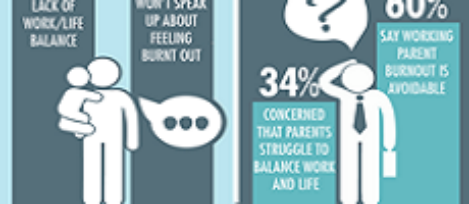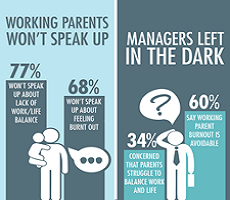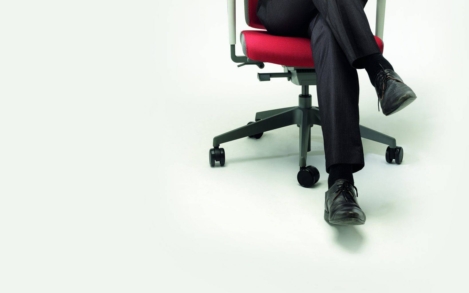October 20, 2015
Majority of US workers keep relationship with boss strictly professional 0
 Nearly three-fourths (74 percent) of US employees consider their relationship with their boss to be excellent or good. However, for many employees, that relationship does not extend out of the office. According to staffing company Spherion’s “WorkSphere” survey, American workers who have a boss are split on whether they consider him or her a friend — 49 percent say yes, while 51 percent say no. And, while 82 percent of employees who have a boss report socializing with him or her during work hours or at work-related events, fewer than half of these workers (46 percent) ever see their boss outside of the office, and 41 percent consider their relationship exclusively professional. However, nearly one in five (18 percent) are connected on their personal social media channels; with nearly twice as many workers ages 18-44 (23 percent) engaging with their bosses in this manner than workers ages 45-54 (12 percent).
Nearly three-fourths (74 percent) of US employees consider their relationship with their boss to be excellent or good. However, for many employees, that relationship does not extend out of the office. According to staffing company Spherion’s “WorkSphere” survey, American workers who have a boss are split on whether they consider him or her a friend — 49 percent say yes, while 51 percent say no. And, while 82 percent of employees who have a boss report socializing with him or her during work hours or at work-related events, fewer than half of these workers (46 percent) ever see their boss outside of the office, and 41 percent consider their relationship exclusively professional. However, nearly one in five (18 percent) are connected on their personal social media channels; with nearly twice as many workers ages 18-44 (23 percent) engaging with their bosses in this manner than workers ages 45-54 (12 percent).
















 In years gone by, a ‘one size fits all’ approach to office design might have been the norm, but as the decades have progressed, so too have the options available to businesses designing ‘homes from home’ for their office-based workforces. As new interpretations of the office environment proliferated, so the open plan model came to into being and eventually evolved into the default office design model. This initially brought greater variety than ever before but, ultimately, a one size fits all mentality in
In years gone by, a ‘one size fits all’ approach to office design might have been the norm, but as the decades have progressed, so too have the options available to businesses designing ‘homes from home’ for their office-based workforces. As new interpretations of the office environment proliferated, so the open plan model came to into being and eventually evolved into the default office design model. This initially brought greater variety than ever before but, ultimately, a one size fits all mentality in 
 Biodynamic lighting is an artificial light source that replicates the dynamic variations of daylight and sunlight through a light management system. Up until recent times, it was commonly believed that light was only needed for seeing. However, in 2001, an American scientist, G. C. Brainard discovered a circadian photoreceptor in the retina, which receives a specific quality and quantity of light, and sets the biological clock.* He discovered that light not only provides us with the ability to see, but that light enters the eye via the ‘fourth pathway’, which has a vital non-visual or biological effect on the human body. His studies showed that a certain quantity and quality of light stimulates the biological clock, also known as the circadian rhythm, which regulates hormone levels, particularly melatonin and cortisone, in the body and so plays a vital role in our physical and mental wellbeing.
Biodynamic lighting is an artificial light source that replicates the dynamic variations of daylight and sunlight through a light management system. Up until recent times, it was commonly believed that light was only needed for seeing. However, in 2001, an American scientist, G. C. Brainard discovered a circadian photoreceptor in the retina, which receives a specific quality and quantity of light, and sets the biological clock.* He discovered that light not only provides us with the ability to see, but that light enters the eye via the ‘fourth pathway’, which has a vital non-visual or biological effect on the human body. His studies showed that a certain quantity and quality of light stimulates the biological clock, also known as the circadian rhythm, which regulates hormone levels, particularly melatonin and cortisone, in the body and so plays a vital role in our physical and mental wellbeing.




 This week the UK’s Health Secretary found himself at the centre of a storm because of
This week the UK’s Health Secretary found himself at the centre of a storm because of 










October 21, 2015
Far fewer working women than men receive an annual bonus 0
by Sara Bean • Comment, News, Workplace
Nearly three quarters of the UK’s working women don’t receive any form of annual bonus. Glassdoor’s latest UK Employment Confidence Survey found that only 29 percent of women at work receive a bonus, compared to 44 percent of men, which presumably is one reason why 44 percent of men remain positive about the outlook for their employer as opposed to just one in three women. The survey, which is carried out twice a year, also found that over the last six months, nearly half of all businesses in the UK that had made negative changes in the workplace (49 percent) had made employees redundant/and or communicated plans to implement further redundancies. The result is that nearly a third of employees (32 percent) are concerned that they will be made redundant over the next six months, up from 21 percent from the beginning of last year.
(more…)